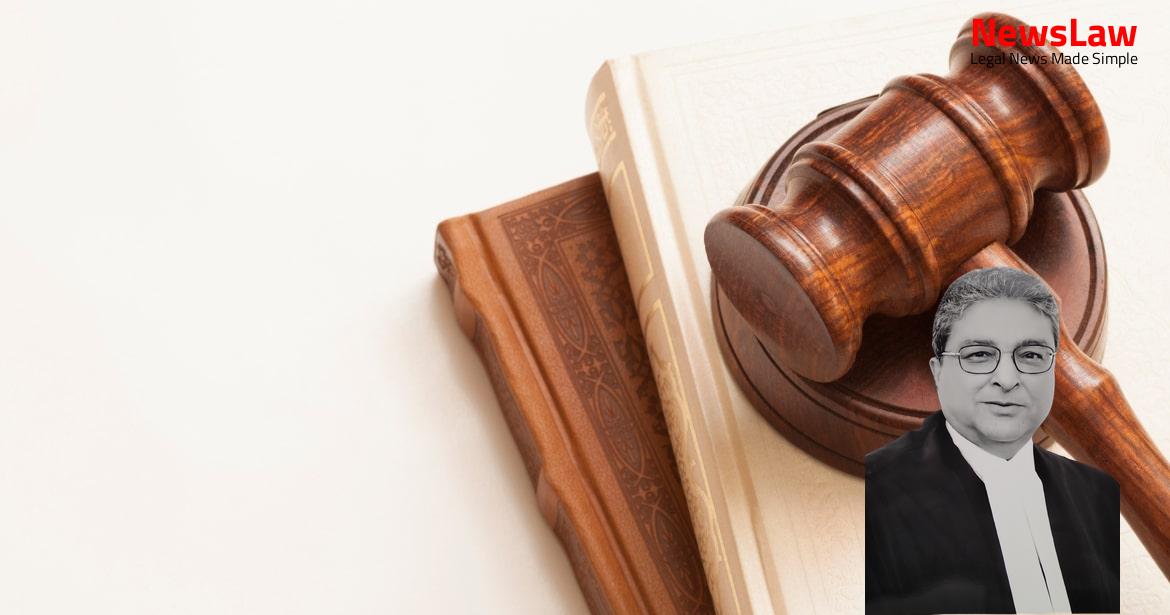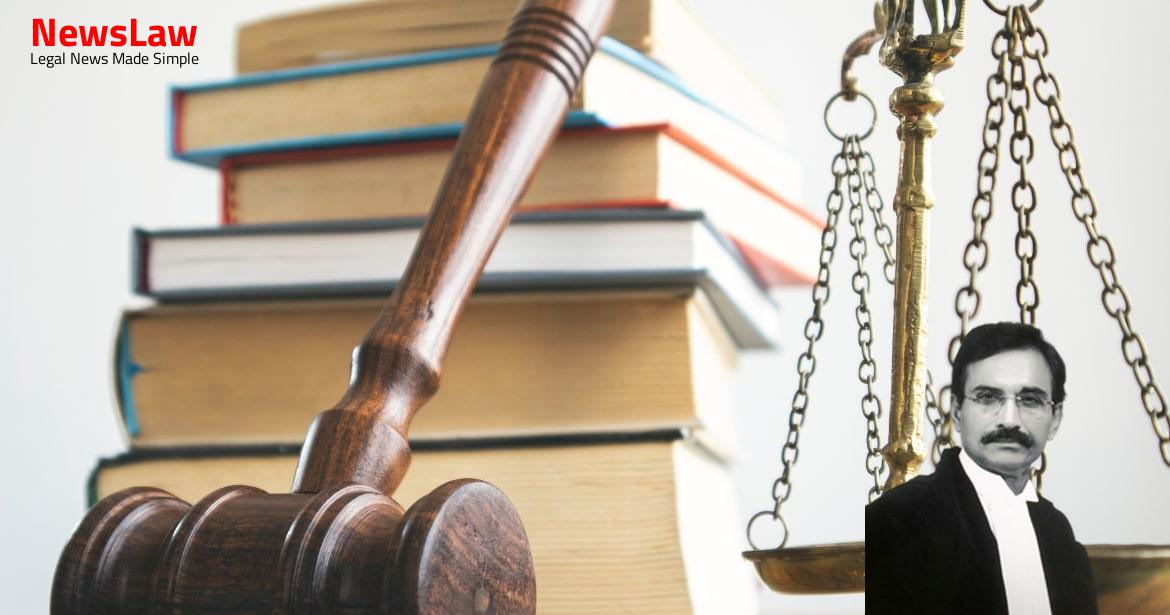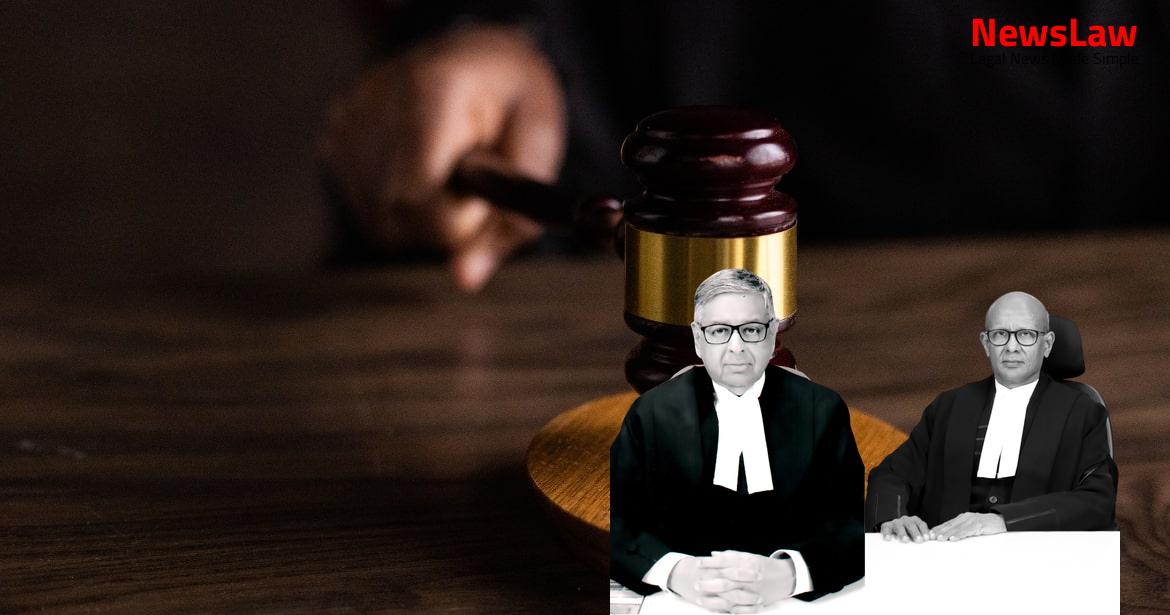In a significant legal battle over a land dispute resolution, the Supreme Court of India delivered a crucial judgment regarding specific performance and extension of time. The case involved multiple parties and complex agreements, with the court carefully examining the evidence presented. Learn more about this landmark decision by the Supreme Court.
Facts
- Plaintiffs claimed specific performance and injunction in respect of item 2 of the property.
- Defendants 9 to 12 colluded with defendants 1 to 8 during the pending litigation and claimed to have purchased the property from defendants 3 to 8.
- First plaintiff passed away during the suit, and plaintiffs 2 to 4 were impleaded as legal representatives.
- Two sale deeds were executed between defendants 1 to 5 and defendant 6 based on an agreement.
- First plaintiff filed a criminal complaint against defendants 1 to 3 for cheating, which led to convictions later set aside.
- Defendants 1 and 2 requested extensions for completing the sale, which were endorsed in the agreement with deliveries of property portions.
- High Court outlined rival submissions, including allegations of collusive suits and disputed agreements.
- High Court allowed Appeal Suit Nos. 646 and 647 of 1987, granting specific performance.
- Defendants 1 to 5 claimed to have sold the property to defendants 6 and 7, challenging the rights of plaintiffs based on agreements.
- The High Court ruled against the Plaintiff on the first three points, denying the relief of specific performance.
- The High Court examined the validity of Exhibits-A5 and A6 to determine if specific performance could be granted to the Plaintiff even if these documents were deemed valid.
- Dismissing the Plaintiff’s argument regarding the extension of time through Exhibits-A7 to A10, the High Court found that the Plaintiff was not ready and willing to perform the contract, thus rendering them ineligible for a decree of specific performance.
Issue
- Ex.A.5 and Ex.A.6 were the key contracts in question, regarding whether the plaintiffs were ready and willing to perform their part.
- The authenticity and genuineness of Ex.A.39 equivalent to Ex.B.19, involving the defendants in O.S.No.704 of 1981 and O.S.No.707 of 1981, was discussed.
- Exs.A.7, A.8, A.9, and A.10 were analyzed in relation to the extension of time and possession of the suit property by the defendants in the cases.
Also Read: CRPF Act: Validity of Rule 27 for Compulsory Retirement – Case of Head Constable vs. CRPF
Arguments
- By virtue of Exts.7 to 10, time to complete the transaction was extended.
- The Plaintiff demonstrated readiness and willingness to complete the transaction.
- The Trial Court’s view was deemed just and proper by Mr. Balasubramanian, learned Senior Advocate.
- No interference was warranted in the first appellate jurisdiction.
- Ms. Sumathy, a learned Advocate, submitted that the High Court rightly found that Exhibits 7 to 10 could not be believed.
Also Read: DAMEPL vs. DMRC: Curative Petition and Arbitral Award Restoration
Analysis
- The High Court recorded a finding that the Plaintiff failed to prove the extension of time for completing the transaction.
- As a result, the argument of readiness and willingness on the part of the Plaintiff was weakened.
- It was established as a fact that there was no readiness and willingness on the Plaintiff’s part.
- Only Rs.5,000 out of a total consideration of Rs.1,19,500 were paid as earnest money on 16.07.1980.
- Upon reviewing the evidence, no errors were found in the assessment of the payment of earnest money.
- The High Court’s conclusions based on the early payment of Rs.5,000 in July 1980 are deemed correct and do not warrant interference under Article 136(1) of the Constitution.
- In the current circumstances, justice would be served by compensating the appellants in addition to refunding the earnest money.
Decision
- The appeals have been dismissed.
- A direction has been given to make over a sum of Rs.5 lakhs in lieu of return of earnest to the present appellants within eight weeks from today.
- No costs are to be incurred by the appellants.
Case Title: VENKITALAKSHMI Vs. K. RAJU AND ORS.
Case Number: C.A. No.-006258-006259 / 2019



